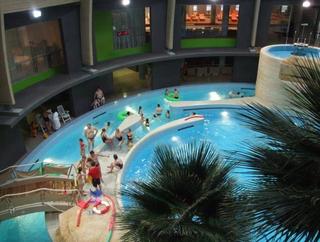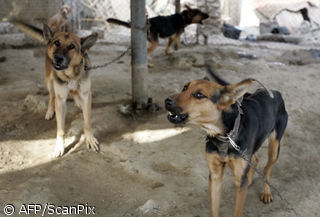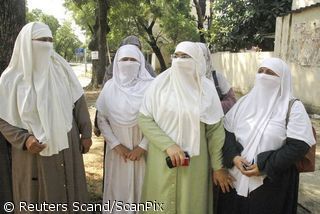Independent journalists and international human rights organizations are concerned about the future of free-press development in Kazakhstan
Published:
20 January 2004 y., Tuesday
Independent journalists and international human rights organizations are concerned about the future of free-press development in Kazakhstan, citing pending media legislation that would effectively give the government the ability to meddle in the operations of news-gathering organizations.
A clear majority in Kazakhstan's lower house of parliament, or Mazhilis, passed the media bill on December 25. Free-speech advocates believe the upper house, or Senate, will approve the bill as early as in mid-February. "We have no hope in the Senate, and [only] a very small hope that the president will reconsider and not sign this draft law," said Irina Petrushova, editor of the opposition Assandi Times newspaper.
Under the law, the Ministry of Information Affairs would have nearly unlimited powers to suspend a media organization's operations. The law places no restrictions on monopolies, and does little to guarantee journalists' rights. The law vaguely states that journalists have a right to gather information. At the same time, the legislation mandates that media organizations perform certain functions as defined by the Ministry of Information - a requirement that critics fear could be used to deny registration to media outlets that anger the government.
Petrushova, one of the bill's most outspoken critics, said the Western reaction to the media bill could play a pivotal role in its future. An outcry against the law by Western government and non-governmental groups could pressure Kazakhstani President Nursultan Nazarbayev not to sign the restrictive legislation. The Assandi Times has already published two so-called "protest editions" with statements from international organizations such as Reporters Without Borders and the World Association of Newspapers that criticize the draft law. The newspaper plans to release additional special editions in January to draw fresh international attention to the legislation. But, so far, such criticism appears to have had little effect.
Šaltinis:
EurasiaNet
Copying, publishing, announcing any information from the News.lt portal without written permission of News.lt editorial office is prohibited.
The most popular articles
 14-year-old Nathan Clark drowned after being sucked into the Thai water park in the popular resort of Pattaya pool's pumping system.
more »
14-year-old Nathan Clark drowned after being sucked into the Thai water park in the popular resort of Pattaya pool's pumping system.
more »
 The sixth day of Spain's Pamplona bull run got off with a bang.
more »
The sixth day of Spain's Pamplona bull run got off with a bang.
more »
 China drafts its first animal protection law to prevent animal abuse.
more »
China drafts its first animal protection law to prevent animal abuse.
more »
 You arrive at the airport ready for your flight - but upon arrival you find the flight has been overbooked leaving you waiting for another one.
more »
You arrive at the airport ready for your flight - but upon arrival you find the flight has been overbooked leaving you waiting for another one.
more »
 Former Defense Secretary Robert McNamara, the leading architect of U.S. involvement in the Vietnam War, has died in his sleep at his home in Washington, D.C.
more »
Former Defense Secretary Robert McNamara, the leading architect of U.S. involvement in the Vietnam War, has died in his sleep at his home in Washington, D.C.
more »
 Tips and advice for a hassle-free holiday in Europe.
more »
Tips and advice for a hassle-free holiday in Europe.
more »
 Some EU countries are making it hard for other EU nationals to obtain residence permits.
more »
Some EU countries are making it hard for other EU nationals to obtain residence permits.
more »
 People, who lay claim to the state sponsored housing loans, can already submit applications on receiving a credit under preferential conditions in Bank SNORAS.
more »
People, who lay claim to the state sponsored housing loans, can already submit applications on receiving a credit under preferential conditions in Bank SNORAS.
more »
 From July 1, all gambling activities in Russia have to move to 4 designated zones, far from the bright lights of the big cities, or cease altogether.
more »
From July 1, all gambling activities in Russia have to move to 4 designated zones, far from the bright lights of the big cities, or cease altogether.
more »
 French President Nicolas Sarkozy supports a group of legislators, who've said they're concerned that increasing numbers of women are wearing burqas in France.
more »
French President Nicolas Sarkozy supports a group of legislators, who've said they're concerned that increasing numbers of women are wearing burqas in France.
more »